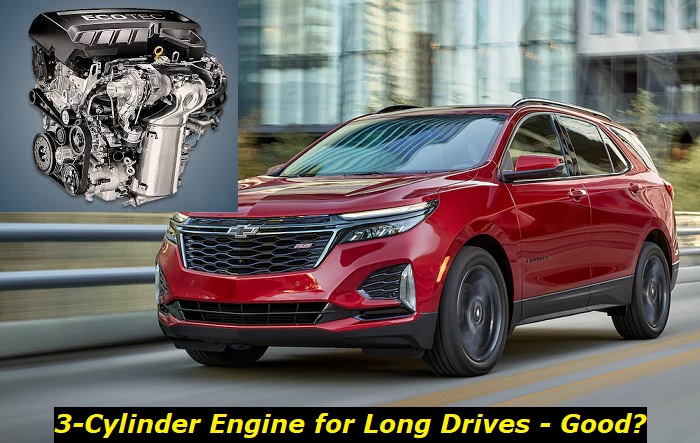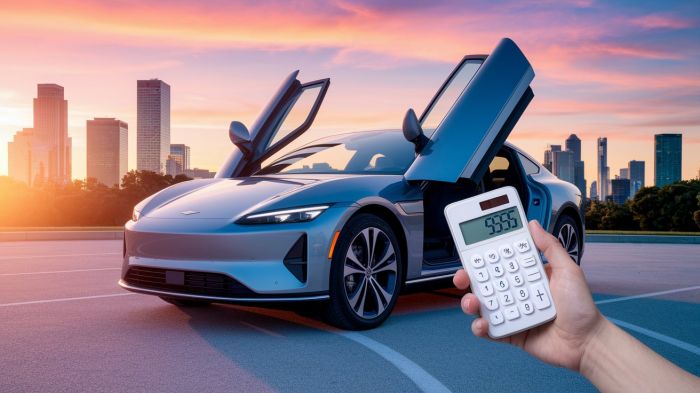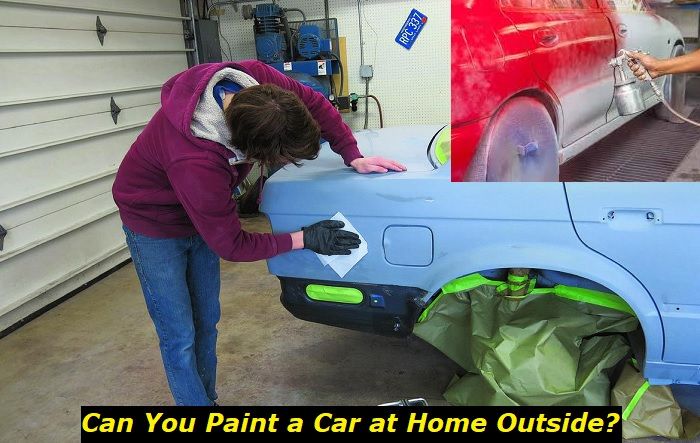3-cylinder engines are as good for long drives as 4-cylinder or 6-cylinder ones. They are fuel-efficient, often quite powerful, and you won't feel the lack of one cylinder in the construction. Actually, these engines are not worse than the 4-cylinder ones. But the question is if they are durable enough and won't let you down during intercity drives.
Engine systems use highlights
- Level of importance:important
- When done:when driving or maintaining the vehicle
- Cost of mistake:$100 - $300
- How to avoid:read driver's manual, ask your dealership for guidelines
- Consequences:wrong use ofimportantfunctions, minor engine damage
- DIY solutions:possible

Driving a 3-cylinder car on a highway - any problems?
Actually, you won't have lots of problems driving on highways in a 3-cylinder car. If no one tells you that any modern car has a 3-cylinder engine inside and you will just drive it, you will never say this engine lacks 1 cylinder.
Some older engines that were mostly sold in Europe (like the HTP engine in VW cars with 1.2 liters of displacement) weren't that good. They were vibrating all the time and didn't live longer than 100K miles, in most cases. But now car manufacturers provide us with much better 3-cylinder engines and most of our concerns are just not backed with real problems.
Here are some features you need to remember:
- your RPM will likely be slightly higher but you won't feel this in the car and it won't lead to any discomfort;
- when idling, the vehicle may feel like vibrating a little more significantly than the 4- or 6-cylinder car, but not when driving;
- the majority of 3-cylinder engines now go with turbochargers and they develop pretty good power and torque;
- also, the transmissions are set to maintain the proper torque at any driving mode so that you got the most out of this engine;
- your gas mileage is going to be more or less the same as in a 4-cylinder engine in the same conditions, maybe even better;
- although the engine is noisier than other ICE units, you will not hear this in the car's interior thanks to good soundproofing.
These bullets are all about modern vehicles with 3-cylinder engines. If you take an older car with a non-turbo 3-cylinder engine, it will be a little worse. But still, you can go interstate in such a car without any problems. Maybe, it will create a little more discomfort on the road due to the vibrations and sounds it makes, but overall, it won't be that bad.
But you should keep in mind that the majority of 3-cylinder engines are made for cities. When you go faster than 90 MPH, you may feel the lack of power and torque and overtaking will most likely be a problem. Driving with an average speed of 55-65 MPH will make no difference between 3-cylinder and 4-cylinder engines.
What are the key benefits of 3-cylinder engines?
They all have 1 cylinder less than the most popular 4-cylinder versions. It means that they burn less fuel and create less harmful emissions gasses. These are the key benefits of these engines. But when you are driving on highways, these 3-cylinder gasoline engines are going to burn as much fuel as a 4-cylinder unit with approximately the same power.
Actually, I think that the benefits of the 3-cylinder engine for the driver are very overestimated. It means that you get about zero advantages in comparison with a classic 4-cylinder engine. But let's have a closer look from all points of view.
Here are the claimed benefits of small 3-cylinder engines:
- less material is used to build them, so they are more eco-friendly even when they are still on the production line;
- they are lighter and allow manufacturers to power tiny city cars with tiny engines making the overall weight of the car lower;
- these engines are cheaper to build than other types of ICEs, so the cars powered with them should cost cheaper for buyers;
- the engines are more economical in city driving which is a huge benefit for owners;
- the engines are cheaper to replace than, for example, a V6, so you may find this as another advantage.
Some of the advantages are important while some are just here to fill the gaps. Actually, I don't think that a modern 3-cylinder engine will cost you much less than the 4-cylinder one. It may cost less to manufacture, so it may bring more revenue to the company that makes cars. But you will still pay the full price.
Also, the benefits of fuel consumption are pretty arguable. If you take a small 4-cylinder engine and an average 3-cylinder one, you will see that their consumption is almost the same. It depends more on the displacement and used technologies than on the number of cylinders.
Why are most drivers concerned about 3-cylinder engines?
The industry offers more and more 3-cylinder options now. The first popular version in the US was the 1.0 EcoBoost engine. Then, there are two engines in the Chevy cars - the 1.2L and the 1.3L ones that are installed in several models including SUVs. Also, the 1.5 VC-Turbo in the new Rogue has 3 cylinders. Jeep Renegade is also available with a 3-cylinder engine. And this list is going to grow further.
But why people are so careful when buying these vehicles powered by 3-cylinder engines? I believe there are several important reasons why this happens.
Here are some of the most common ones:
- The durability of these engines is not really good. In most cases, 3-cylinder engines can live 100-140 thousand miles which is much less than the average 4-cylinder machine can last.
- The issues with driving on highways. You will need to rev up these engines and they will lose their power and torque at high mileage. It's important if you drive on highways a lot.
- The engines are usually problematic. Almost all 3-cylinder engines that I know have a lot of common problems. You can check some reviews in our blog and you will see how many issues show up in these machines.
- Expensive repair. Very often, you can't repair these engines after they fail due to very thin block walls. Many failures will be fatal and will require engine replacement.
- They are not much cheaper for a car owner. These engines may be cheaper for car manufacturers, but maintaining and repairing them is certainly more expensive than maintaining an average 4-cylinder engine.
I believe it's enough to feel alerted about the features that a 3-cylinder engine has. Most likely, you will not want to buy a car with such an engine inside after you read this list. But you should weigh all pros and cons and then make a certain decision. I should tell you that the majority of engines that were engineered after 2018 will have the same problems, and it doesn't matter how many cylinders they have.
I also know that some modern 3-cylinder engines like the VC-Turbo by Nissan are going to be much better than the majority of 4-cylinder engines with the same power and torque. The secret is in the technologies that were used in the engine and in the quality of materials.
Things to remember when driving a 3-cylinder car
You should remember that your vehicle doesn't have a lot of power and torque. So when you are going on a highway and want to overtake some other vehicle, be careful. Your acceleration may not be as fast as you expect.
Also, when driving such a car, you should get used to some vibrations when the vehicle is idling. It's not something you need to worry about. 3 cylinders will always work a little harshly and this is just the way they work, no need to repair or inspect the engine.
One more thing - you shouldn't expect that this engine will last 200,000 plus miles. It will probably last 100K miles without many problems and then it will start getting on your nerves with all kinds of different issues.
Final thoughts
What I want to say at the end of this article is that driving a 3-cylinder car doesn't differ much from driving a 4-cylinder vehicle. And you should get ready to accept such technologies because they are the last stage of ICE at all. After that, we'll only have hybrid and electric technologies. But now, if you still want a car that's powered by gasoline, you should be ready to buy a 3-cylinder vehicle.
While it certainly has more disadvantages than advantages, this technology is developing fast and getting under the hood of the cars that were equipped with mighty V6 engines just recently. Ecology standards are killing engines with big displacement, so engine downsizing is one of the natural steps we all expect from car manufacturers.
About the authors
The CarAraC research team is composed of seasoned auto mechanics and automotive industry professionals, including individuals with advanced degrees and certifications in their field. Our team members boast prestigious credentials, reflecting their extensive knowledge and skills. These qualifications include: IMI: Institute of the Motor Industry, ASE-Certified Master Automobile Technicians; Coventry University, Graduate of MA in Automotive Journalism; Politecnico di Torino, Italy, MS Automotive Engineering; Ss. Cyril and Methodius University in Skopje, Mechanical University in Skopje; TOC Automotive College; DHA Suffa University, Department of Mechanical Engineering






Add comment